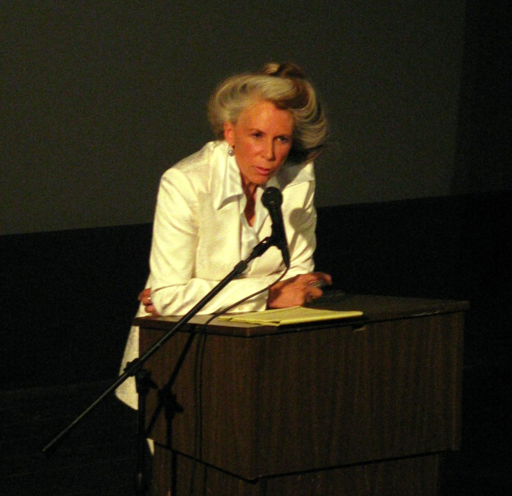Catharine MacKinnon (1946– ), one of America’s foremost feminist legal scholars and theorists, is a passionate advocate of women’s rights.
MacKinnon is an advocate of women’s rights
Her book Sexual Harassment of Working Women (1979) helped lay the foundations of sexual harassment law in the United States.
Her most controversial work has dealt with pornography. In MacKinnon’s view, there exists a tension, embodied in the pornography debate, between the First Amendment’s guarantee of free speech and the Fourteenth Amendment’s guarantee of equal protection.
Born in Minneapolis, Minnesota, MacKinnon graduated from Smith College. She earned a law degree and a doctorate in political science from Yale University. Currently, she serves as the Elizabeth A. Long Professor of Law at the University of Michigan and is a visiting professor at the University of Chicago.
Pornography harms women, perpetuates gender subordination
In her writings, MacKinnon argues that pornography — along with sexual violation, physical violence, and prostitution — helps perpetuate the dominance of men over women in society. Pornography harms women in two ways.
- First, the women who appear in pornographic films are debased by the filming itself. Most of them are forced to do so by pimps or because of drug abuse, past sexual abuse, or lack of other avenues for income — not by free choice.
- Second, pornography conveys the message that women exist not as equal human beings but as things to satisfy men’s sexual appetites; it teaches and encourages men to treat women as inferior. MacKinnon argues that pornography is a form of sex discrimination, and sex equality becomes impossible unless pornography is eliminated.
MacKinnon argues pornography should not have First Amendment protection
MacKinnon’s opposition to pornography brings her into conflict with advocates of free speech, including many feminists. MacKinnon does not dispute that free speech has great value; however, it is only one of many values, and social equality is another. She notes that the courts have said that free speech is not unlimited and argues that it should give way to the greater good of equality for women.
Indeed, under established sexual harassment law, it is not inconsistent with the First Amendment to ban certain forms of expression in the workplace because they interfere with women’s equal employment rights. Moreover, she considers pornography to be hate speech, not free speech.
Finally, since women are trapped in a subordinate sociopolitical position, they cannot be said to have the same free speech rights as men. Therefore, pornography should be banned — not as a question of morality but as a matter of women’s equal rights.
MacKinnon finds the Miller test insufficient
Although the courts have ruled, in Miller v. California (1973), that materials may be banned if they are found to be obscene, MacKinnon finds the Miller test deficient on two grounds.
- First, the test has proved in practice to be so vague as to be almost useless.
- Second, even if not obscene, a work may still convey the message of female subordination that perpetuates inequality between the sexes. Even if enforceable, the Miller test fails to achieve MacKinnon’s goal of creating equality between the sexes.
Indianapolis anti-pornography ordinance overturned
MacKinnon’s ideas found practical application when the city of Indianapolis passed an anti-pornography ordinance that she and Andrea Dworkin had drafted. The law provided for civil penalties for those distributing pornography, which it defined as “[t]he graphic sexually explicit subordination of women through pictures and words that also includes women being sexually used and abused, for example being dehumanized as sexual objects who enjoy pain, humiliation or rape, bound, mutilated, dismembered, in positions of servility or submission or display, or penetrated by objects or animals.” (MacKinnon distinguishes pornography from erotica, which she defines as sexually explicit materials showing men and women as equals in giving and receiving pleasure.)
A group of adult bookstores challenged the ordinance. The Seventh Circuit Court of Appeals, in American Booksellers Association v. Hudnut (7th Cir. 1985), affirmed a lower court’s decision overturning the law.
Although it accepted the argument that pornography can influence behavior, the court ruled that the law was overly broad and was a content-based restriction on speech and was therefore unconstitutional.
MacKinnon butts heads with First Amendment advocates
MacKinnon’s approach to pornography has sparked controversy.
Her critics argue that:
- her definition is overly inclusive and would ban many works considered to be art;
- that the practical meaning of terms such as subordination and objectification are subjective; and
- that her approach would limit women’s ability to express their sexuality.
Although no other laws have incorporated her approach, the debate between MacKinnon and free speech advocates continues.
This article was originally published in 2009. Stephen Robertson is an Adjunct Assistant Professor of Political Science and International Relations at Middle Tennessee State University, where he has taught for about 25 years. He has always had a deep interest in constitutional law and the First Amendment and explores these topics in his courses on American government and women’s rights under American law.

